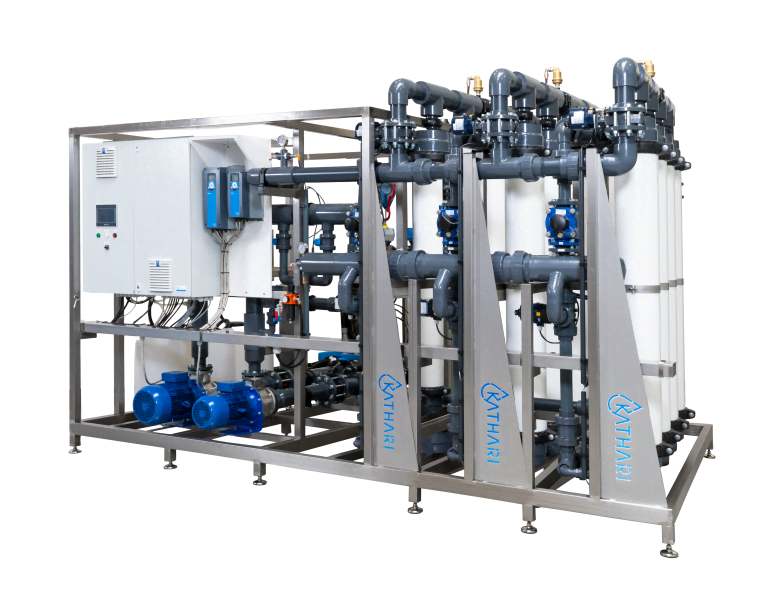- English

Development of the Kathari ultrafiltration unit completes Van der Ende Groep’s water treatment range and from today the group can advise its customers on all facets in the area of (irrigation) water quality and availability.
About Van der Ende Groep
Van der Ende Groep is a progressive family business, manufacturer, innovator and supplier of technical products in the area of water treatment, climate solutions and (industrial) filtration technology. For more than 35 years, Van der Ende Groep has been the place to go for pump technology, water and air treatment, control engineering, industrial filtration, technical service provision and much more.
Question from the market
The Kathari has its origins in the Poseidon sodium extractor, which was developed in response to the Water Framework Directive and its regulations on discharge of drain water containing plant protection products. Before this, build-up of sodium was a major reason for many growers to discharge the drain water. The Poseidon extracts the sodium from drain water, resulting in savings on nutrients and water. This system consists of multistage filtration, with ultrafiltration as an important stage for removing viruses, bacteria and fungi to prevent fouling in the other filtration stages. The water analyses performed to monitor the Poseidon revealed that ultrafiltration is extremely effective in removing viruses, bacteria and fungi. As a result, the market started to ask whether ultrafiltration could be used to extract pathogens from drain water, partly because of the increasingly prevalent ToBRFV virus.
With this question in mind, Van der Ende Groep sat down at the development bench. The experience gained with the Poseidon sodium extractor (winner of the GreenTech Sustainability Award 2018) was now applied in further developing some of that technology to create the present Kathari ultrafiltration unit. The Kathari achieves a Log 4 reduction of viruses and fungi and Log 6 reduction of bacteria by means of ultrafiltration using membrane technology. This physically separates the viruses, bacteria and fungi from the drain water. And because ultrafiltration technology is low-energy, economically beneficial (favourable CapEx) and sustainable, it does this in a cost-effective way (low OpEx).
In conclusion:
Re-using clean drain water in the right way allows growers to save on expensive nutrients, with the additional advantage of reducing the environmental burden. The ultrafiltration method has a great track record over many decades and is used in a wide range of water treatment situations worldwide. “We optimised this technology, after extensive experience with Poseidon and in consultation with a leading membrane manufacturer, to make it suitable for use in greenhouse horticulture,” says Micha van Nieuwkerk, CCO of Van der Ende Groep.